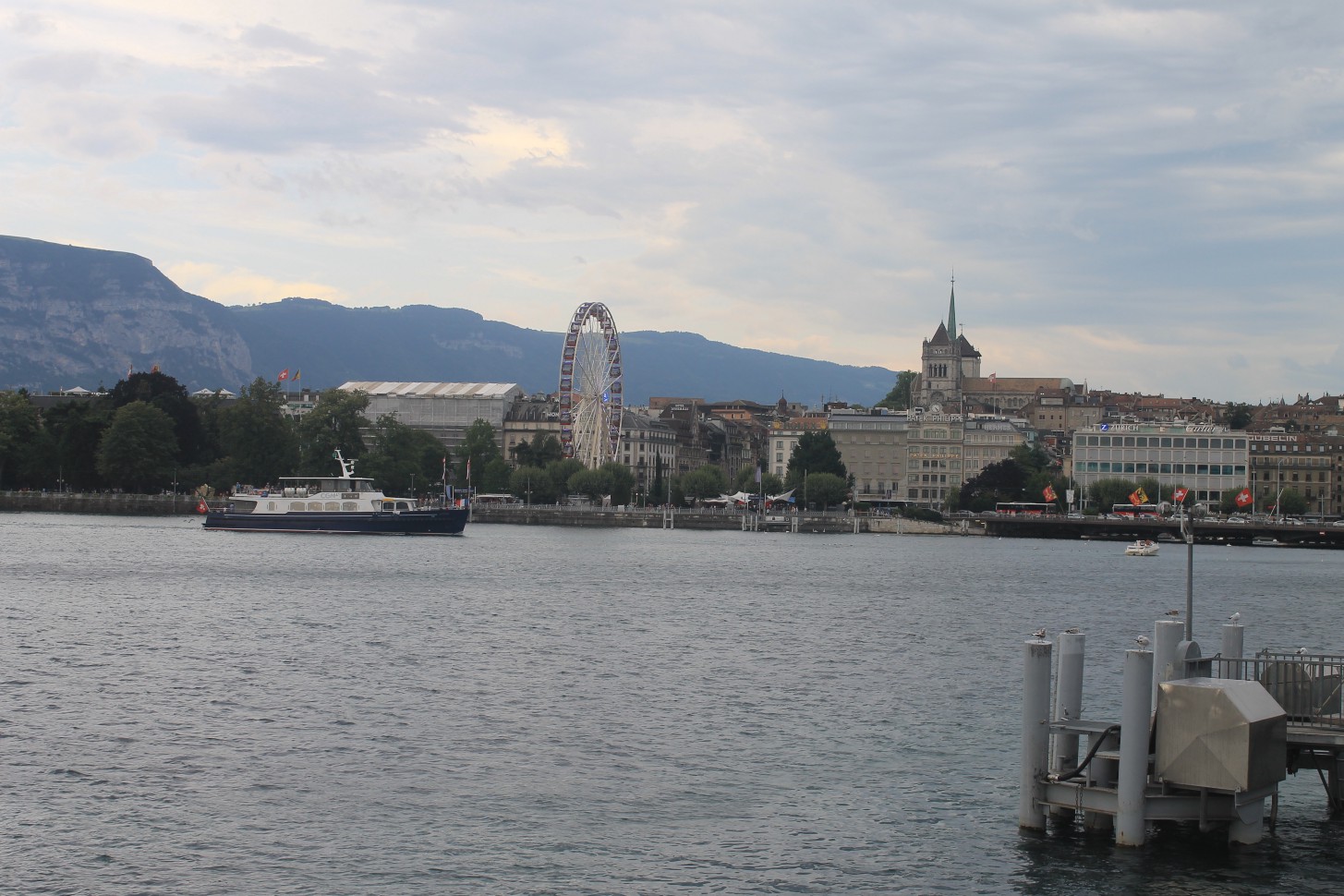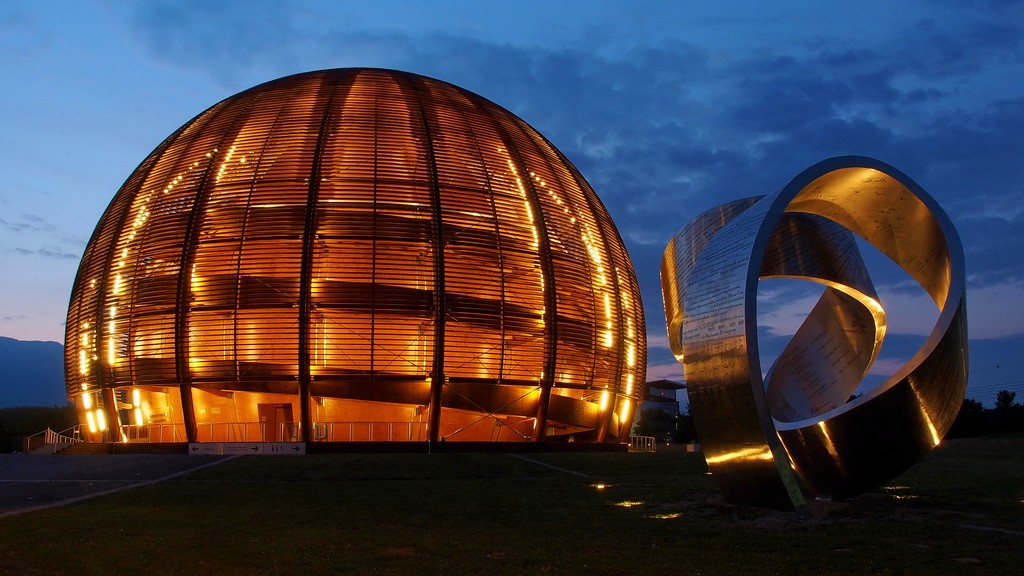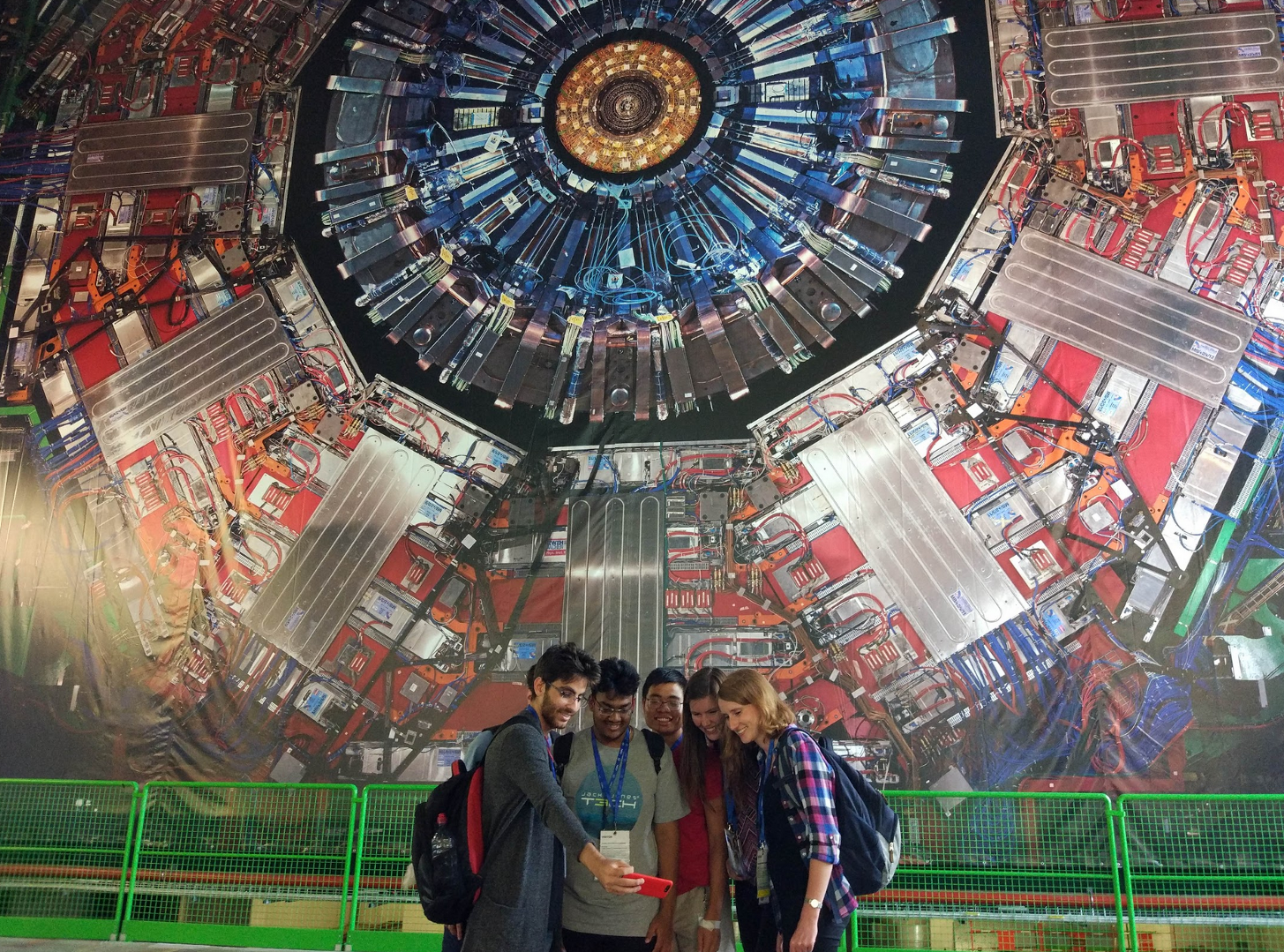CERN Openlab Summer Student Program
This post is about my internship within the CERN Openlab Program in 2017 and includes a questionnaire (hopefully) useful for students applying to the program.
Disclaimer: The views represented here are solely my own, and do not reflect those of my employer.
Over the past summer, I worked as an intern at the European Organisation for Nuclear Research (CERN). It is an international research collboration working on high-energy physics and computing, set in a picturesque location cradling the borders of France and Switzerland. I have been receiving a lot of messages about the application process and this post is an attempt to try and address some queries regarding the experience.
I had filled out a highly detailed application form last October, wondering if I had a snowball’s chance in hell to get selected into one of the most prestigious international internship programs at a research collaboration that was truly unparalleled in its domain. After a few months of sleepless nights and particle-filled daydreams, I received the much-awaited email from CERN…
It was a rejection email from the Summer Student program.
It was a disappointing week for me as I tried to move on and apply for other internships. All of a sudden, there was a ray of light shining through this darkness, in the form of an offer to undertake research at Stanford University. I jumped at the marvelous opportunity and initiated the formalities necessary for the process.
As I finally completed my US Visa Application and acceptance of the Stanford offer, I received yet another email from CERN.
I still remember that was the day I was discussing something with my mother who was cooking. I was leaning against the door then, and we were casually chatting when the notification popped up.

I had read in novels about someone that ‘fell flat down’ on receiving some news. For the first time it actually happened to me. I literally just dropped down to the floor in a cross-legged position and told mom:
“Ma, I got into CERN”
“Huh, what are you saying? And get up, who asked you to sit there!”
“Ma… I got into CERN!”
“What is that?”
“CERN, Ma! The internship that I applied to in Switzerland?”
“If you keep going around like a fool applying to all these places how do you expect me to remember!”
My mother, ladies and gentlement.
Getting back to the story, I spoke with my potential advisor at CERN and the Professors at Stanford discussing at length about what would be a better idea for me. Despite not knowing me beyond our email threads, the professors were extremely generous with their time and supportive of my decision to accept the offer from CERN. My Openlab supervisor even offered to accommodate dates of the program such that I could do both! It was then that I knew that I had struck gold in terms of people.
To be fair, CERN was paying me while Stanford required me to (more or less) support myself. More importantly, the professors were open to discussing potential opportunities in the future. That made my decision slightly easier to make. Anyway, fast-forward to a month later, and there I was sitting on the Y Bus traveling from Geneva Airport to my hotel in Saint-Genis Pouilly, France (yep, work in Switzerland, live in France - the CERN life ;))
 The City of Geneva
The City of Geneva
My internship at CERN has been an amazing learning experience not just in terms of the work but also in terms of people — each with a unique story to tell. These factors have contributed in no small part to the life-changing experience this has been. I arrived as a wide-eyed teenager, and left as a wider-eyed teenager, with an insatiable curiosity to learn more.
CERN drives you to push a little harder, seek a deeper understanding, and try to find a better solution to the problems you work on.
My work was understanding, modeling, and ultimately solving a problem — also about addressing the complexities that arose when we attempted to expand the solution to a broader set of applications. With an organisation of this scale, there are going to be multiple problems of a similar nature, with fine lines of separation. As my supervisor told me, it’s a personal decision whether you’d want to focus on a microscopic solution that can address a niche problem which may impact macroscopic issues intrinsically, or to attempt to create an an inherently macroscopic solution that could potentially be tweaked to address challenges affecting narrower segments of work in greater depth. CERN afforded me the opportunity to choose my path in spite of being just one of many hundreds of summer students. Amazingly enough, I learnt over the course of the summer, this was a privilege extended to all members of CERN regardless of position or responsibilities.
The credit for a fantastic summer belongs, in no small part, with my supervisors, both of whom were the driving forces constantly challenging me to research and review better practices and improve the models for my project — Anomaly Detection in Database Connections. Mr. Prasanth Kothuri and Mr. Daniel Lanza Garcia helped me figure out the research subjects that aligned with my interests and constantly supporting me in terms of resources and domain expertise. If Mr. Kothuri was doubtful about the solution to my issues that were seemingly esoteric, he would encourage me to find others at CERN who possessed the domain-specific knowledge and even accompanied me to some seminars in order to seek the same understanding as I would — and eventually figure out a solution together.
It was really encouraging to find this kind of support being extended and responsibilities being shared with us in one of the most active and experienced groups at CERN compared to the common treatment as ‘just an intern.’
 The Globe of Science and Innovation — emblematic of the values CERN embodies (Picture Credit: Jessica Wallis)
The Globe of Science and Innovation — emblematic of the values CERN embodies (Picture Credit: Jessica Wallis)
The project I was working on involved detecting anomalous database connections in order to serve multiple purposes including but not limited to analysing and deriving insights from usage patterns, monitoring the number of connections, and ultimately database security. With no real benchmarks or training data in this field, we set out to find a solution and use various machine learning practices and models to apply unsupervised learning and arrive at a conclusive result. We managed to utilise an ensemble of different models that measured deviation based on differing metrics. Further, we cross-verified results and extracted common anomalies that were then flagged to be verified. Through my interactions with my peers within the same program, I realized a lot of us were working on the same problem with different forms of data. I was motivated to move beyond the scope of my project and build an intuitive system that could not only provide a common base to leverage these models, but also offer an intuitive interface for non-technical users, seeing as a lot of CERN staff include physicists that may not be familiar with cutting-edge computing practices. It was a start towards utilising the research that has gone into multiple Openlab projects into a single end-user application.
On the personal front, this experience has taught me a lot about people and the way they look at a problem.
I had always been reading about how it helps to have different perspectives towards the same problem and I often wondered what it meant. Meeting students literally from the other side of the globe has taught me that there is a lot of truth to this statement.
I was lucky enough to have probably the best roommates I’ve ever had — notwithstanding the fact that these are the only roommates I’ve ever had. We have cooked, cleaned, driven, trekked, hitchhiked, played, and somersaulted off boats together. Openlab has really provided a unique platform that has resulted in friendships across continents and a network that encompasses most countries across the world. It leads to a sense of security — no matter where we go on after this experience, we will have friends nearby that we can count on in times of need or maybe just to blow off some steam over the weekends.
 A few Openlab Interns at one of the Experiments
A few Openlab Interns at one of the Experiments
I could rave about the past summer until the end of time because it’s hard to out all my experiences into a single blog post but I figure I have to sum it up at some point so I would like to conclude with some quotes from one of the wiser role models in my life, Master Shifu from Kung-Fu Panda, as answers to some of the common questions people have been asking me about getting into CERN:
What is CERN looking for? What do I write on my application? How did you get into CERN?
“Your real strength comes from being the best you you can be. Who are you? What are you good at? What makes you, you?” “There is no secret ingredient”
Write about yourself, your experiences, your projects, and trust the universe to align the rest of the factors. Maybe you get in, maybe you don’t. All I can say is that you need to ensure you research every detail about CERN before applying because my motivation for applying was derived from the nature of work being undertaken within the specific department that ultimately accepted me. Keep trying until you make it, because honestly, if I did it, you can.
How was your experience at CERN? Is it really worth it?
(in case the blog post wasn’t clear enough)
I would do it all over again, twelve times over. Because thirteen is just an unlucky number.
Are the other programs similar? Is it worth undertaking other opportunities at CERN?
My perspective is rather biased because like I said, I’ve had an amazing summer. I would always want to go back to CERN (and I did get back as a Technical Student for a year following Openlab). However there are periods where I’ve been told there’s very little activity, when the climate isn’t all that great, and there are hardly any people on the streets of Geneva. It’s not ideal, but your work is undoubtedly going to remain challenging and interesting regardless of how it is outside the window. It’s just that life becomes slightly slow. You must learn to adapt at some point, and this is a great place bustling with activities ranging from Zumba and Krav Maga to lunch hours with random people in order to get to know them better. It’s such a diverse environment that you never going to be bored with so many different nationalities around!
What is the format for your resume? Can you share it with us?
(added this since there have been so many students asking me about this)
Pretty much a no-brainer, there is no single acceptable format for the resume. All they ask for is a document that carries your experience, achievements, and possibly projects in a succinct, neat format. It is really a pretty simple document to create using the infinite wisdom of the internet.
I have been selected as a reserve candidate. What are my chances of getting selected?
The nature of selection at CERN (Openlab, Technical Student, and Summer Student), as I probably mentioned already (or maybe not) is that they have unique projects each year, for which they require a diverse skillset. There is no single set of skills for which they have an opening each year.
Furthermore, each supervisor proposes his/her own set of students — there isn’t really a centralized selection committee to filter through the thousands of candidates that apply (although there is one to oversee final selections). So again, nobody can really tell you what your chances are based on past candidates or projects. Please refrain from spamming people with emails regarding this particular aspect because when most of them say they aren’t aware, they really do mean it.
Specifically for the ‘reserved candidates’ I am unaware of the exact process — all I can tell is that it is not an outright rejection but neither does it imply with certainty that your selection is imminent. That is all I know of at this point.
With that, I’ve reached the end of the tiny window that I’ve provided into my work and life at CERN. It was an amazing eight weeks and I look forward to seeing more of this place in the near future!
Update: I am back at CERN, working as a Technical Student so I’ll probably be updating this article to eliminate any inaccuracies for posterity.
Further Reading: CERN and Openlab
If you’d like to know more about Openlab or CERN in general please refer to some of the answers I’ve written on Quora or check out my presentation on Internships:
-
How did Swapneel Mehta become a Summer Intern at CERN? What did he do in the internship?
-
What is the process for being selected as a summer intern in Summer Student’s Program at CERN?
-
How do I get back to CERN? I spent a few months there when I was a computer engineering student.
-
What are the kind of projects that students work on, during their summer internship at CERN?
-
What might be the cost for a Bangladeshi student to join the Cern Summer Programme?
-
Can Indian engineering students apply for summer internship at CERN?
-
What specific skill set should an undergrad possess to land an internship at CERN?
References
Cover Image: One of the experiments at CERN.
Picture Credit Quantum Grid
Originally published at Punintended 404 on April 7, 2018.